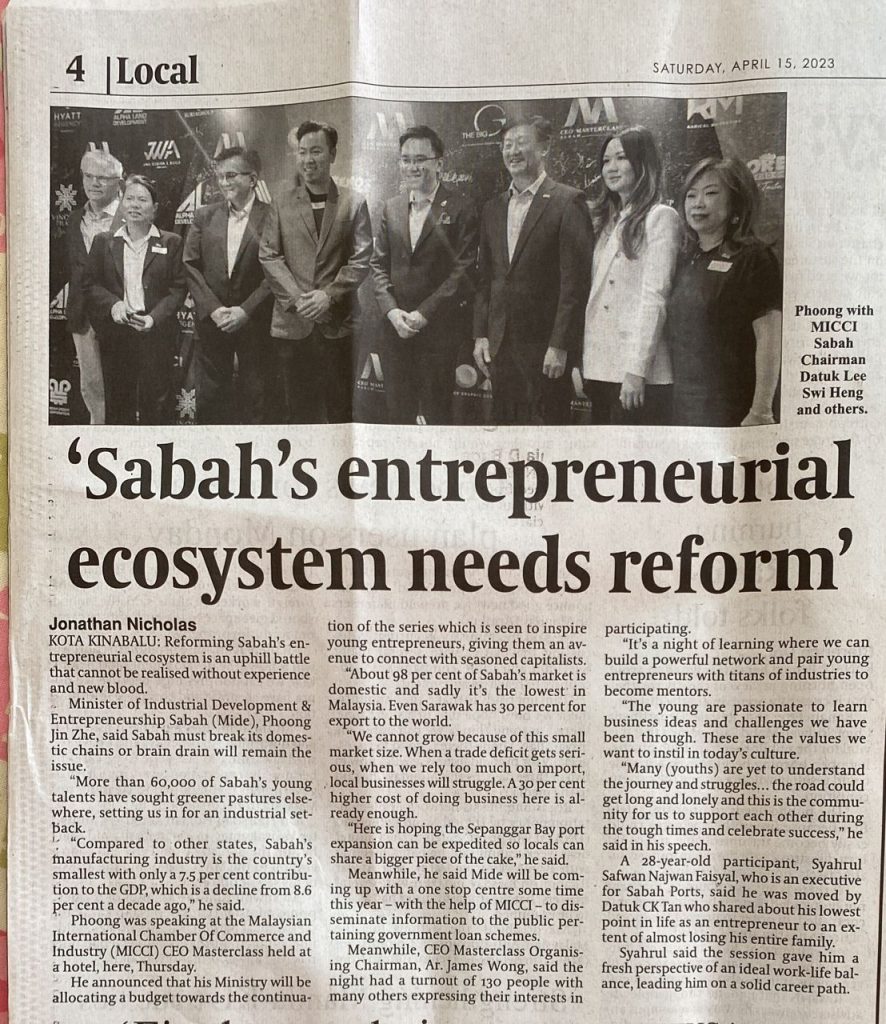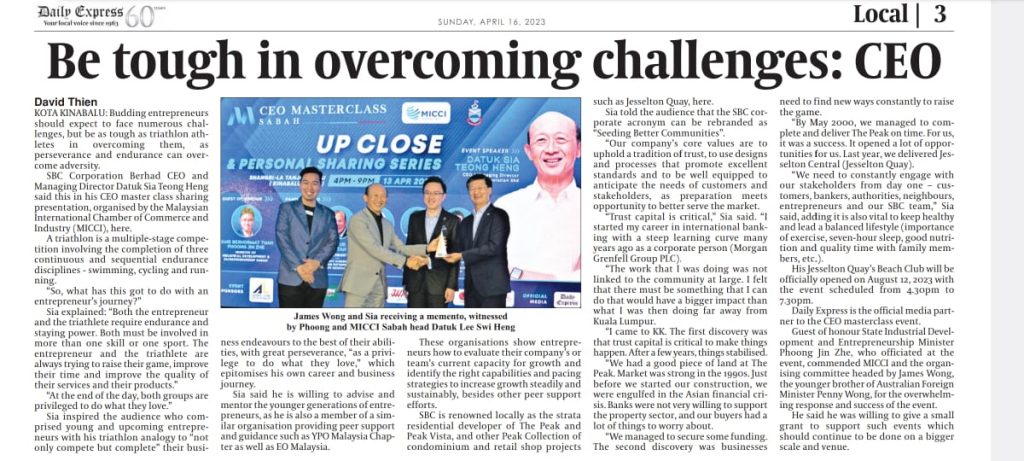AFTER nearly 20 years in Australia, where I worked in both professional practice and healthcare business roles, I returned to Sabah in January 2024 and identified a critical gap in our healthcare system: transitional care.
Transitional care involves comprehensive medical support for patients transitioning from hospital to home or other care settings during crucial recovery periods, coordinated through multidisciplinary teams. This approach goes beyond traditional post-hospital rehabilitation by integrating continuous care that addresses the full spectrum of patient needs, from acute care to home recovery.
Well-structured transitional care systems have a profound impact on individual and community well-being. By improving health outcomes, reducing readmission rates, and alleviating pressure on hospitals, these systems make healthcare more sustainable and patient-centered. For Sabah, adopting such frameworks can help bridge existing gaps, enhancing the quality of care and providing critical support for patients during their most vulnerable recovery phases.
Transitional care programs are designed to bridge the gap between hospital discharge and home recovery, ensuring patients receive the necessary support to continue their recovery at home.
This is not just for the aged, disabled, or terminally ill; it also includes well-educated professionals, entrepreneurs, and breadwinners who may be suddenly impacted by accidents or critical medical conditions requiring hospitalization. The most crucial phase is the period between discharge and regaining normalcy, where medical support can significantly influence how quickly they return to their everyday lives.
I have visited some of the general hospitals in Sabah, and my heart breaks as I see patients lying on mats on the floor, waiting for medical attention in overcrowded hospitals. These are the poor and needy, crying out for public medical care.
They are also at risk of worse conditions if discharged prematurely due to the absence of transitional healthcare facilities. A well-implemented transitional care system is urgently needed, as it directly impacts the well-being of our citizens and the overall efficiency of our healthcare infrastructure.
Government’s Role and Vision for Sabah’s Healthcare Future
My heart’s desire is to see the Government turn its attention to transitional care, which not only reduces the burden on our overcrowded hospitals but also allows patients to be looked after by professionals during this critical period before they can safely recover at home. This approach frees up hospital beds for others in need of acute care and ensures ongoing, tailored support for patients.
Developing a successful transitional care model requires in-depth studies and the formulation of a robust system that meets Sabah’s unique cultural and practical needs. Our healthcare challenges are distinct, and any solution must take into account the realities of our local context. This means collaboration with government agencies, hospitals, insurance companies, multidisciplinary professionals, healthcare providers, and community organizations to create a system that is both effective and sustainable.
From an economic perspective, a well-implemented transitional care system ensures a healthy society that continues to drive economic growth across both public and private sectors, fostering healthier families and more contributing individuals. This cannot be achieved without the Government taking a vital role in spearheading a comprehensive transitional healthcare system that supports the poor and needy in our population.
A Vision for Sabah as a Healthcare Destination
Healthy people create healthy environments. I love Sabah, and I am a Sabahan at heart. The breathtaking natural beauty, vibrant cultural tapestry, and affordable, resort-like living style make Sabah a leading destination for innovative healthcare. This vision could create jobs within the healthcare sector, stimulate investment in related services such as retirement villages, and position Sabah as a retirement haven of Southeast Asia.
By aligning our efforts across sectors and focusing on continuous, personalized care, we can create a healthcare system that is proactive rather than reactive. This approach is not just about improving healthcare; it’s about enhancing the quality of life for all Sabahans, making our state a beacon of health and well-being for generations to come.
Rome was not built in a day, so they say. In my heart, I want to do anything within my means to transform the healthcare system in Sabah especially in the provision of transitional health care, which is completely lacking now.
Call to Action
I call on our government, healthcare professionals, and the community to join me in this mission to transform Sabah’s healthcare system. Together, we can ensure that every Sabahan has the support they need during their most vulnerable times, paving the way for a healthier, more prosperous future for our beloved State.
John Cham is the Managing Director of Blue Swan Home Care, Malaysia’s first specialist medical team bringing hospital-level care directly to your home. With extensive experience in Australia’s healthcare industry, John has introduced Australian-standard care to Sabah, building a healthcare ecosystem with continuous specialist oversight. Blue Swan Home Care is dedicated to providing families with peace of mind, whether supporting their loved ones through recovery or offering compassionate care through their end-of-life journey.
Source: Daily Express




